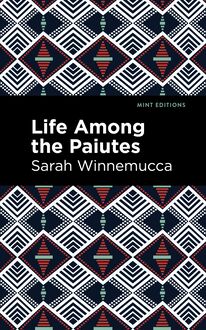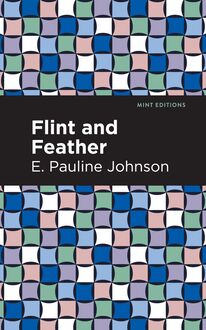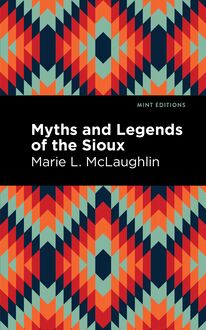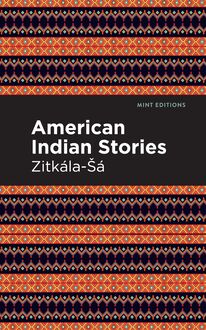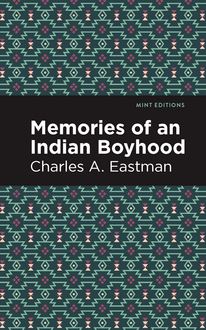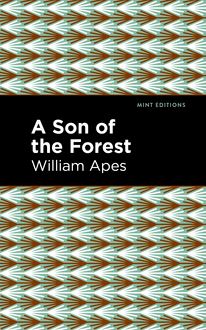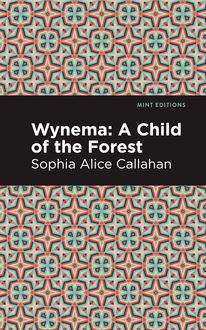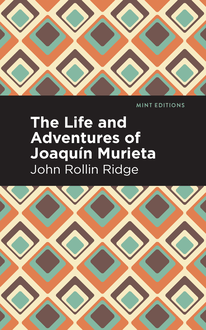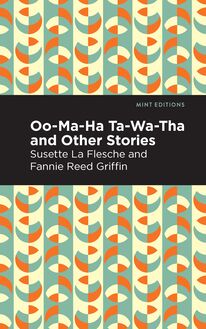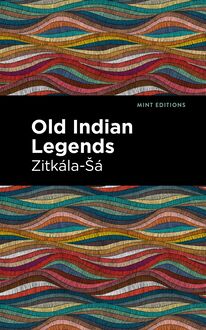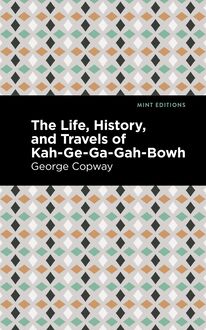-
 Univers
Univers
-
 Ebooks
Ebooks
-
 Livres audio
Livres audio
-
 Presse
Presse
-
 Podcasts
Podcasts
-
 BD
BD
-
 Documents
Documents
-
- Cours
- Révisions
- Ressources pédagogiques
- Sciences de l’éducation
- Manuels scolaires
- Langues
- Travaux de classe
- Annales de BEP
- Etudes supérieures
- Maternelle et primaire
- Fiches de lecture
- Orientation scolaire
- Méthodologie
- Corrigés de devoir
- Annales d’examens et concours
- Annales du bac
- Annales du brevet
- Rapports de stage
La lecture à portée de main
Vous pourrez modifier la taille du texte de cet ouvrage
Découvre YouScribe en t'inscrivant gratuitement
Je m'inscrisDécouvre YouScribe en t'inscrivant gratuitement
Je m'inscrisEn savoir plus
Vous pourrez modifier la taille du texte de cet ouvrage
En savoir plus

Description
Wynema: A Child of the Forest (1891) is a novel by Muscogee American writer Sophia Alice Callahan. Published when the author was only 23 years old, Wynema: A Child of the Forest is the first novel written by an American Indian woman. Although it gained little, if any, attention upon publication, the novel was rediscovered and reprinted in 1997. Wynema: A Child of the Forest is an essential record of the Massacre at Wounded Knee and the subsequent Lakota Ghost Dance movement, a work of fiction which looks at the suffering of American Indians through the eyes of an assimilated Muscogee woman, a character not unlike Callahan herself.
Wynema is a young Muscogee girl. Raised in Indian Territory, she is educated in English and becomes a teacher at a local mission school. There, she befriends a white coworker, whose brother she eventually marries. In time, the couple gives birth to a child and begins to raise their family. However, following the Massacre at Wounded Knee, and horrified by stories of orphaned Lakota children left to fend for themselves, Wynema and her husband decide to expand their family by adopting a young Lakota girl. Through this family narrative, Callahan examines the assimilation of American Indians into Western culture while providing a critical comparison of Christianity and the Ghost Dance religion. In its description of the events at Wounded Knee, the novel portrays heroic Lakota women risking their lives to save children from the onslaught of American soldiers, a circumstance unreported in the press’s presentation of the Massacre. Wynema: A Child of the Forest is an important and vastly unknown novel from the first woman novelist of American Indian heritage.
With a beautifully designed cover and professionally typeset manuscript, this edition of Sophia Alice Callahan’s Wynema: A Child of the Forest is a classic of American Indian literature reimagined for modern readers.
Sujets
Informations
| Publié par | Mint Editions |
| Date de parution | 23 février 2021 |
| Nombre de lectures | 0 |
| EAN13 | 9781513276915 |
| Langue | English |
| Poids de l'ouvrage | 2 Mo |
Informations légales : prix de location à la page 0,0350€. Cette information est donnée uniquement à titre indicatif conformément à la législation en vigueur.
Extrait
Wynema
A Child of the Forest
Sophia Alice Callahan
Wynema: A Child of the Forest was first published in 1891.
This edition published by Mint Editions 2021.
ISBN 9781513271910 | E-ISBN 9781513276915
Published by Mint Editions®
minteditionbooks.com
Publishing Director: Jennifer Newens
Design & Production: Rachel Lopez Metzger
Project Manager: Micaela Clark
Typesetting: Westchester Publishing Services
T O THE I NDIAN T RIBES OF N ORTH A MERICA
Who have felt the wrongs and oppression of their pale-faced brothers, I lovingly dedicate this work, praying that it may serve to open the eyes and heart of the world to our afflictions, and thus speedily issue into existence an era of good feeling and just dealing toward us and our more oppressed brothers.
—T HE A UTHOR
C ONTENTS I. I NTRODUCTORY II. T HE S CHOOL III. S OME I NDIAN D ISHES IV. T HE B USK V. T HE D ANCE VI. A N I NDIAN B URIAL VII. A S TRANGE C EREMONY VIII. W HAT B ECAME OF IT? IX. S OME C HANGES X. G ERALD S PEAKS XI. I N THE O LD H OME XII. A C ONSERVATIVE XIII. S HALL W E A LLOT? XIV. M ORE C ONCERNING A LLOTMENTS XV. W YNEMA’S M ISCHIEF XVI. T HE R ETURN XVII. A NOTHER V ISIT TO K EITHLY C OLLEGE XVIII. T URMOIL W ITH THE I NDIANS XIX. T HE F AMILY T OGETHER XX. A MONG THE R EBELS XXI. C IVILIZATION OR S AVAGE B ARBARITY XXII. I S T HIS R IGHT? XXIII. T HE P APOOSE XXIV. C ONCLUSION
I
I NTRODUCTORY
I n an obscure place, miles from the nearest trading point, in a tepee, dwelt the parents of our heroine when she first saw the light. All around and about them stood the tepees of their people, and surrounding the village of tents was the great, dark, cool forest in which the men, the “bucks,” spent many hours of the day in hunting, fishing in the river that flowed peacefully along in the midst of the wood. On many a quiet tramp beside her father, did this little savage go, for she was the only child, and the idol of her parents’ hearts. When she was quite small, and barely able to hold a rifle, she was taught its use and spent many happy hours hunting with her father, who occasionally allowed her to fire a shot, to please her.
Ah, happy, peaceable Indians! Here you may dream of the happy hunting-grounds beyond, little thinking of the rough, white hand that will soon shatter your dream and scatter the dreams.
Here is a home like unto the one your forefathers owned before the form of the white man came upon the scene and changed your quiet habitations into places of business and strife.
Here are no churches and school-houses, for the “heathen is a law unto himself,” and “ignorance is bliss,” to the savage; but the “medicine man” tells them of the Indian’s heaven behind the great mountain, and points them to the circuitous trail over its side which he tells them has been made by the great warriors of their tribe as they went to the “happy hunting-ground.”
Sixteen miles above this village of tepees stood another and a larger town in which was a mission-school, superintended by Gerald Keithly, a missionary sent by the Methodist assembly to promote civilization and christianity among these lowly people. Tall, young and fair, of quiet, gentle manners, and possessing a kindly sympathy in face and voice, he easily won the hearts of his dark companions. The “Mission” was a small log-house, built in the most primitive style, but it accommodated the small number of students who attended school; for the Indians long left to follow after pleasure are loth to quit her shrine for the nobler one of Education. It was hard to impress upon them, young or old, the necessity of becoming educated. If their youths handled the bow and rifle well and were able to endure the greatest hardships, unmurmuringly, their education was complete; hence every device within the ken of an ingenious mind, calculated to amuse and attract the attention of the little savages, and to cause them to desire to remain near the school-room, was summoned to the aid of this teacher, “born not made.” He mingled with the Indians in their sports whenever practicable, and endeavored in every way to show them he had come to help and not to hinder them. Nor did he confine himself to the village in which his work lay, for he felt the command “Go ye into all the world and preach the gospel to every creature,” impelling him onward. The village of tepees, Wynema’s home, know him and welcomed him; in the abode of her father he was an honored guest, where, with a crowd gathered about him, he told of the love and mercy of a Savior, of the home that awaits the faithful, and urged his dusky brethren to educate their children in the better ways of their pale-faced friends. At first he talked through an interpreter, but feeling the greater influence he would gain by speaking to the Indians in their own tongue, he mastered their language and dispensed with the interpreter. But to Wynema he always spoke the mother tongue—English; for, he reasoned, she is young and can readily acquire a new language, and it will profit her to know the English. His was the touch that brought into life the slumbering ambition for knowledge and for a higher life, in the breast of the little Indian girl. Her father and mother carried her to the “mission” to hear Gerald Keithly preach, and missing her when they started off the following day, they found her in the school-room, standing near her friend, listening eagerly and attentively to all he said and wonder-struck at the recitations of the pupils, simple though they were.
“Father,” she said, “let me stay here and listen always; I want to know all this the pupils are talking about.” “No, my child,” answered her father, “your mother and I could not get along without you; we can build you a school at home, and you may stay there and listen.”
“When, father, when?” Wynema asked eagerly. “Ask Gerald Keithly when he comes,” he answered, to divert her attention from himself. Then the days became weeks to Wynema, impatiently awaiting the coming of her friend.
Every day she thought with delight of the school her father would build, and every day planned it all for the benefit of her little friends and playmates, who had become anxious also, from hearing Wynema’s description of school life, to enter “learning’s hall.” When Gerald Keithly finally came, he found a small school organized under Wynema, waiting for a house and teacher.
“Do you really wish to go to school so much, little girl?” he asked Wynema, only to see her cheeks flush and her eyes flash with desire.
“Oh, so much!” clasping her hands; “may I?” she asked.
“If your father wishes,” Gerald answered gladly.
“Father said ask you, and now you say, if father wishes,” she began disappointedly.
“Well, then, you may, for I shall send off for you a teacher, right away. Now, then, go tell your playmates;” and he patted her cheek.
“Oh, I am so glad!” and she looked at him, her eyes full of grateful tears; then ran gleefully away.
Gerald Keithly then went to the father, stalwart Choe Harjo, and asked:
“Do you want a school here? and will you build a house? If so, I will send and get you a teacher.”
“Yes,” he answered, “the child wishes it; so be it.” “Would you like a man or woman for teacher?” Gerald questions.
“Let it be a woman, and she may live with us; I want the child to be with her always, for she is so anxious to learn. We will do all we can for the teacher, if she will live among us.”
“I am sure of that,” answered Gerald, warmly pressing the Indian’s hand.
So the cry rang out in the great Methodist assembly; “A woman to teach among the Indians in the territory. Who will go?” and it was answered by one from the sunny Southland—a young lady, intelligent and pretty, endowed with graces of heart and head, and surrounded by the luxuries of a Southern home. Tenderly reared by a loving mother, for her father had long ago gone to rest, and greatly loved by her brother and sisters of whom she was the eldest, she was physically unfit to bear the hardships of a life among the Indians; but God had endowed her with great moral courage and endurance, and she felt the call to go too strenuously, to allow any obstacles to obstruct her path.
She understood the responsibility of the step she was about to take, but, as she said to her mother who was endeavoring to persuade her to change her resolve, and pleading tearfully to keep her daughter with her:
“God has called me and I dare not refuse to do his bidding. He will take care of me among the Indians as he cares for me here; and he will take care of you while I am gone and bring me back to you again. Never fear, mother, dear, our Father takes care of his obedient, believing children, and will not allow any harm to befall them.”
Thus came civilization among the Tepee Indians.
II
T HE S CHOOL
G enevieve Weir stood at her desk in the Indian school-house, reflecting: How shall I make them understand that it is God’s word that I am reading and God to whom I am talking? She deliberated earnestly. What do they know about the Supreme Being?
Poor little girl! She made the common mistake of believing she was the only witness for God in that place. Wynema often spoke of Gerald Keithly in her broken way; but Genevieve believed him to be miles away.
“I shall begin the exercises with the reading of the Word, and prayer, at any rate, and perhaps they will understand by my expression and attitude,” she determined at length, calling the school to order. She read a portion of the fourteenth chapter of St. John—that sweet, comforting gospel—then clasping her hands and raising her eyes, she uttered a simple prayer to the “all-Father,” asking that he open the hearts of the children, that they might be enabled to understand His word; and that He give her such great love for her dusky pupils, that her only desire be in dividing this Word among them. The pupils understood no word of it, but the tone went straight to each one’s heart and found lodgement there. At
-
 Univers
Univers
-
 Ebooks
Ebooks
-
 Livres audio
Livres audio
-
 Presse
Presse
-
 Podcasts
Podcasts
-
 BD
BD
-
 Documents
Documents
-
Jeunesse
-
Littérature
-
Ressources professionnelles
-
Santé et bien-être
-
Savoirs
-
Education
-
Loisirs et hobbies
-
Art, musique et cinéma
-
Actualité et débat de société
-
Jeunesse
-
Littérature
-
Ressources professionnelles
-
Santé et bien-être
-
Savoirs
-
Education
-
Loisirs et hobbies
-
Art, musique et cinéma
-
Actualité et débat de société
-
Actualités
-
Lifestyle
-
Presse jeunesse
-
Presse professionnelle
-
Pratique
-
Presse sportive
-
Presse internationale
-
Culture & Médias
-
Action et Aventures
-
Science-fiction et Fantasy
-
Société
-
Jeunesse
-
Littérature
-
Ressources professionnelles
-
Santé et bien-être
-
Savoirs
-
Education
-
Loisirs et hobbies
-
Art, musique et cinéma
-
Actualité et débat de société
- Cours
- Révisions
- Ressources pédagogiques
- Sciences de l’éducation
- Manuels scolaires
- Langues
- Travaux de classe
- Annales de BEP
- Etudes supérieures
- Maternelle et primaire
- Fiches de lecture
- Orientation scolaire
- Méthodologie
- Corrigés de devoir
- Annales d’examens et concours
- Annales du bac
- Annales du brevet
- Rapports de stage
